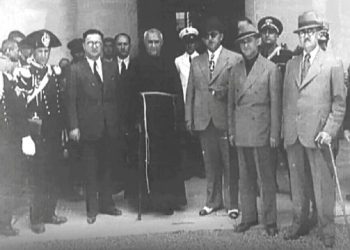By Bashkim Trenova
Part forty-six
Memorie.al publishes the memoirs of the well-known journalist, publicist, translator, researcher, writer, playwright and diplomat, Bashkim Trenova, who after graduating from the Faculty of History and Philology of the State University of Tirana, in 1966 was appointed a journalist at Radio- Tirana in its Foreign Directorate, where he worked until 1975, when he was appointed journalist and head of the foreign editorial office of the newspaper ‘Zeri i Popullit’, a body of the Central Committee of the ALP. In the years 1984-1990, he served as chairman of the Publishing Branch in the General Directorate of State Archives and after the first free elections in Albania, in March 1991, he was appointed to the newspaper ‘Rilindja Demokratike’, initially as deputy / editor-in-chief and then its editor-in-chief, until 1994, when he was appointed to the Ministry of Foreign Affairs with the position of Press Director and spokesperson of that ministry. In 1997, Trenova was appointed Ambassador of Albania to the Kingdom of Belgium and the Grand Duchy of Luxembourg. Unknown memories of Mr. Trenova, starting from the War period, his childhood, college years, professional career as a journalist and researcher at Radio Tirana, the newspaper ‘Zeri i Popullit’ and the Central State Archive, where he served until the fall of the communist regime of Enver Hoxha, a period of time when he in different circumstances met many of his colleagues, suckers of some of the ‘reactionary families’, etc., whom he described with a rare skill in a book of memoirs published in 2012, entitled ‘Enemies of the people’ and now brings them to the readers of Memorie.al
Continued from the previous issue
WITH “HEROES OF THE PEOPLE”
POLITICAL BUREAU AND THE PRESIDENCY
Nefo Myftiu was together with Todi Lubonja, the general director of the Albanian Radio Television, the organizer of the 11th Song Festival, who was unjustly condemned by Enver Hoxha as a decadent, with bourgeois influences, etc., etc. As a result, in April 1973 she was dismissed from this position, left Radio Tirana and was sent to the Artistic Enterprise “Migjeni”.
The sentencing of Nefo Mufti and her expulsion from Radio-Television, after the 11th Song Festival!
The 11th Radio Television Song Festival was not Nefos’s first serious “mistake”. On July 20, 1969, she gave the order to broadcast on Radio Tirana, the news about astronauts Neil Armstrong and Buzz Aldrin, who went down in history as the first human beings to trespass on the moon. The problem is that the American astronauts arrived on the Moon and, from the point of view of the regime, giving this news; Radio Tirana echoed not a historical achievement, but the technical-scientific successes of American imperialism, the sworn enemy of the peoples! Then Nefo passed without any measure this “mistake”. Now with the Festival she had filled the cup, she could no longer be tolerated. She was also mentioned, on this occasion, in July 1969.
I was not on the Radio when Nefo Myftiu left or, more precisely, was expelled from there by the Party, despite being the wife of a member of the Politburo. Of course she has spent days, weeks and months waiting for how Enver Hoxha would decide for her and her husband, if her ordeal would end in “Migjeni”, or one fine day she would see a truck ahead house and would be ordered to load loot and loot, to set off in the unsuspecting direction! This was one of the common practices of dictatorships against “enemies”. I talked at that time with a friend of mine, close to Nefo Mufti, to know something about her fate. He told me that the situation was too serious, that she could not even talk to her husband, could not consult with him, because he refused! She had told him that she could not even talk to her brother, academician, professor and well-known historian, Arben Puto, because she did not know how her “story” would end and did not want to implicate him in this history”.
After she started working in “Migjeni”, I went and met Nefon in her office. He greeted me as if nothing had happened. Drita Peza, the wife of Skënder, my mother’s uncle’s son, who worked at Migjeni, brought us both coffees. I do not remember many things from the conversation we had together. I remember, however, that she was satisfied, almost excited, that when she left Radio Tirana, about 30 employees of the institution had escorted her to “Migjeni”.
Nefo died a few years ago in an extremely difficult but always dignified condition. She was born into a bourgeois family, became a communist, but always remained Manning She has remained in the memory of Radio Television employees as a great woman, as a proud lady, who loved people, who tried to give some sounds of joy to the Albanian youth during the dark years of dictatorship.
In 2008, if I am not mistaken, the Albanian Radio Television celebrated its 70th anniversary. Many of his former employees were also invited on this occasion. Among them was the unforgettable speaker of Radio Tirana, Vera Zheji. Not at the request of those present, from the podium of the hall of the Academy of Arts, uttered only three words: “Tirana speaks to you”. These words she had uttered for years and years in front of the Radio microphone. After applauding from the hall she sat down again in her seat. Then, all of a sudden, he got up again and said, “Excuse me!”It occurred to me to say a few words about a lady, a real lady, who no longer lives, about Nefo Mufti, who has been a man with a human soul, a man who has done only well.” The whole hall applauded Vera Zheji again, who thus conveyed the opinion of an entire generation that has worked and known Nefo Mufti.
Nefo Myftiu himself sums up her life with these words: “We started it in the basements and finished it in the basements”. This is what she told Albert Shala as they walked together on a street in Tirana. Nefo was going to the meeting of the Party organization, which took place in a basement. These words of Nefos remind me of an article I published in “Democratic Renaissance”, in one of its first issues. Among other things, I wrote there that communism came to power at a time when Albania was illuminated by the kerosene lamp and ended by lighting it with the flame of a candle. How Nefo Mufti’s life went can also be understood from some words she exchanged with Liri Belishova, a former member of the Politburo. They met, I believe by chance, after the latter returned from exile in Tirana. Liri Belishova describes this meeting as follows: “When I returned to Tirana, one day I met Nefo Mufti on the street, who said to me:” What can I say to you, my Liri, who has been suffering for 30 years. But you know, we did not put our heads on the pillow either, but like on barbed wire. It seemed to me that Enver looked at me angrily, it seemed to me as if Nexhmija said this word with implication, etc.”
I “met” Liri Belishova since my childhood. On the pages of the only album our house had, there was also a picture of a few weeks before the end of the War. My mother is also fixed there, somewhere in the middle of a hall full of young women and girls. Closer to the camera lens are Nexhmije Hoxha, the wife of the future dictator Enver Hoxha, Fiqerete Shehu, the wife of the dictator’s closest collaborator, the future prime minister, Mehmet Shehu. Likewise, in this photo, a young girl is immediately visible, smiling, with a partisan hat on her head. She was Liri Belishova, who would later become a member of the Labor Party Politburo. The photo was taken on November 4, 1944 in the hall of the 1st Congress of the Albanian Antifascist Woman, which took place in the liberated city of Berat. The photo shows that neither Nexhmija, nor Fiqeretja nor Liria are in the presidium. Later we would get used to seeing them only in the presidiums. I would see the portrait of Liri Belishova, then over the years, like all Albanians, exhibited in the center of the capital alongside other members of the Politburo. Thus, we ordinary citizens had the opportunity to “meet” with our glorious leaders, or more precisely, with their icons.
How the partisans who were in the presidium of the First Congress of the Antifascist Women’s Union were erased from history!
The others, who had been in a hall with them, in a trench with them, had shrunk and been forgotten for several tens of years in a row, as non-existent. It should have been more than 60 years since the Albanian press, commemorating this Congress, wrote: “A special place in the history of the war and the organization of the Albanian Antifascist Woman is occupied by the first Congress of the Antifascist Women Union of Albania, the liberated city of Berat on November 4, 1944… Unforgettable, perhaps even unique, is the example of friends Sabrie Buzhiqi, Ismete Peza, Xhevro Shehu, Dhoksi Llogo, Milika Tërova, Kostaqe Toqe and Sofka Misja, who, with courage and bravery, captured the land left empty by their relatives, the people of the heart who fell, gave their lives and shed blood in the battles for freedom against the invaders and their collaborators”. My mother died forgotten. She was so accustomed to forgetfulness that when one of her friends “accidentally” mentioned something concrete from the war years, it seemed as if she was discovering something new that did not belong to her. He would probably be happy to read these lines, these words that he never heard alive. The whole space was occupied by the “dinosaurs” of Albanian communism. Maybe it would be too late to enjoy!
I had my first and only meeting with Liri Belishova in 1991 or 1992, in the editorial office of the newspaper “Rilindja Demokratike”. A dry man, of a certain age, was working in the editorial office at that time as its head. His name was Kreshnik. I do not remember his last name because he quickly left Albania, and therefore from the editorial office of “Democratic Renaissance”. I know that he had previously worked in the administration of the newspaper “Bashkimi”. Kreshnik went to the United States. I helped him get the visa at the US Embassy in Tirana. I asked this honor to the American ambassador, Mr. William E. Rayerson, with whom we were well acquainted. He was the first American ambassador to post-war Albania. Rayerson was a simple man, very popular in Albania. He has given a special help in the first steps of democratic developments and in the victory of democracy in Albania. I can say that he knew well the role of the opposition press and was a friend of the “Democratic Renaissance”. I remember him coming to the newsroom on foot with his small rain tent in his hand, just like any ordinary citizen of the capital. I also remember when he lined up among the citizens on the sidewalks of the Boulevard “Stalin” in Tirana, to follow their manifestations against the dictatorship. There has been a lot of talk today about American “arrogance” in diplomacy.
Diplomats like Rayerson, in my opinion, are a testament of the opposite. I cannot say whether those who have followed him have taken him as a model. I left Albania shortly before him. From afar, it has often seemed to me that any of them, at the request of the Albanian political class, has not hesitated to play the role of governor general! To be precise, I want to add that this role, in fact, in the Albania of transition, in my opinion, has been played by European ambassadors, and even some MEPs, such as Mrs. Doris Pack, for who, however, maintain respect. This has to do with its ongoing stance on Kosovo.
I had also asked Kreshnik for an honor before. He had told me that he was Liri Belishova’s cousin. I learned from him that Liri Belishova had returned from exile in Tirana and that she, despite the years, was quite clear in her thoughts. I asked Kreshnik to talk to him and ask him if he wanted to give an interview for “Democratic Renaissance”. Liria came and met me at the newsroom with her son. I interviewed him with great pleasure. It seems to me that this was my first interview.
The “pepper” questions that Filip Çakuli asked Liri Belishova about Enver Hoxha?
From this meeting I remember that Liri Belishova, who had once been responsible for the propaganda of the Labor Party, had not lost the skills she had gained in this post. She did not hesitate to give us some tips on the newspaper’s well-being. From this meeting I also remember the interventions of Filip Çakulli, completely out of place and without any finesse in the conversation. We all wanted to know something from the dictator’s life and his relationships with his closest collaborators. Filip, from a completely different world, asked Lirina: “Well, tell me the truth, was Enver Hoxha a womanizer”? Dissatisfied with Liria’s answer, he went even further, asking: “Has Enver Hoxha ever put his hands on you?” Liria, who did not know Philip, answered seriously: “No, no!”You can blame Enver Hoxha for everything, but not for this.” We laughed hard, he was heavy on us from the questions Philip was asking, but he is. He mocked and made fun of everyone and everything, both tragic and comic, friends, as well as opponents.
His humor was boundless in dictatorship, as well as in democracy. He once put me in a difficult position by publishing something, always with humor, where the characters were me, the secretary of the Democratic Renaissance Collegium, Xhevat Mustafa and the president of the Republic, Sali Berisha. His humor coincided somewhat, quite coincidentally, with a conversation I had with President Sali Berisha. I had told him that Xhevat understood and spoke German and that he could serve in any Albanian embassy in German-speaking countries. I socially told Philip that he had not done well. I could not explain why. In this case, he told me: “Or Bashkim, I make jokes and make fun of myself, my wife. Are you asking me”?! From the meeting with Liri Belishova in the newsroom, from the interview and the conversation with her, I remember her words: “When I left Tirana, I was only 34 years old, in full bloom, when I returned, an old woman crushed”.
Liri Belishova was not allowed to be near her daughter in the hospital, when she passed away at the age of 22?
Liri Belishova and her family were expelled from Tirana on November 6, 1960. She was expelled from the Politburo, the Central Committee, and the Labor Party. She spent 30 years in exile on the state farm “Myzafer Asqeriu” near Gjirokastra, in Kuç of Vlora, in Progonat, in Cërrik, trying hard work, loading and unloading cash registers. She went on to say, “30 years in isolation as if I had cholera.” Her husband, Maqo Çomo, served 27 years in prison. More serious than “cholera” for Liri Belishova were the prisons, internments, persecutions of her children, the five brothers with their families, the husband’s relatives, his brother and sisters, cousins and friends.
What crushed her soul incurably was the death in 1981 of her daughter, Drita Çomos, at the age of 23 in the Oncology Hospital of Tirana. Drita was interned with her parents when she was only two years old. She left life without enjoying a bit of joy from her.
She died in the hospital without having near her at the last moment neither her mother, nor her father, or anyone of her heart if he really existed, and not just in her sad poetry as her life, a short life, to which her smile had died since childhood. In the last throes of life, light was alone. Freedom was allowed to see him before his death. Liria had begged the Security officers, who accompanied her to the hospital next to her sick daughter, to allow her to wet her lips until the moment when she would leave forever. The order they should have received was ruthless: “The girl was to die alone, eager for a last benevolent glance, and for a few drops of water on her forehead and lips.” She was the daughter of the enemies of the people. Lirisa had in mind in those moments her war friend, Nexhmije Hoxha, she was also a mother and she would probably understand. She asked the Security Officers to call Nexhmije Hoxha and convey her request In vain. They removed her from the Light and allowed her to return again from the place of internment to the Hospital only after the girl had died. Only in this way did the dictatorship fully appreciate the cycle of satisfaction it felt from human suffering.
While reading verses from the poem of the daughter of Liria, Drita Çomos, on the Internet, I came across some lines without an author, which I found quite striking, so I thought of writing them below: “She was angelic like a newborn child. Her only fault was that she came into this world at a timeless time. Came when he should not have come. Fate that follows humanity according to his whims had brought him to be born in a family where father and mother, both, were at the helm of an absurd system, a system for which they had worked and fought, a system that declared as an oppressive machine, was a mechanism so blind that from the unbridled desire to massacre he no longer even asked about its creators. It was a machine of violence and bloodshed, from which the senior leader Liri Belishova and her husband Maqo Çomo would also fall. But, it would also fall heavily on their innocent child named Light. This Light born in the darkness of a foolish time had to pay a heavy tribute to that system. He had to pay for them with suffering and spiritual torment only because God had forgiven him to two parents who had fallen into the traps of dictatorship. Father, former minister, prisons, mother, and former deputy in the dictator’s party, exiled and supervised day and night, slandered and cursed by the dictatorship throughout the ideological literature and forums of the state party. And that Light, the shepherd, followed her mother without knowing why all the calamities of the world had fallen on her parents and on her. She grew daily, until she began to realize that her life was lost, she grew like a flower in the abyss, where there was very little sun. And yet it was beautiful. A beauty destined for destruction. But it was not only the absurdity of the system that made the young girl Drita Çomo smile. There came a moment when she began to feel that another killer fatality was appearing in her body, cancer. He had to face both, the horror of life under dictatorship and the struggle to escape physical death. And on her walks from Cërriku to the hospitals of Elbasan and Tirana, she meditated on her world, in solitude. And what else could he do? And who could have approached her if she had known whose daughter she was? Though between the people on those exhausting trips to be treated, it seemed to her that between her and the travelers wandering in her troubles, there was a thick glass wall. Even the voices came as far away as from any other world. And there in solitude, he took out his pencil and paper and wrote verses, with which he seemed to want to heal the deep wounds “For endless painful patience”.
Liri Belishova was one of the only ones who said: “No” to Enver Hoxha!
What had Liri Belishova done to be punished like this by the dictator, why did this infernal anger pour so monstrously on her, her children, her husband, brothers, cousins and friends? Why was she listed in the Party History following all those who had been declared traitors, sworn enemies of her and the people? In the years 1959-1960, contradictions between the Soviet Communist Party and the Communist Party of China had begun to emerge. At first glance it seems as if they were about doctrinal problems, related to the interpretation of Marxism-Leninism and its putting into practice. Indeed they, as I think, had to do with the rivalry for hegemony in the international communist movement and beyond. Between the two communist giants, China and the Soviet Union, there were also sharp and large territorial problems inherited from the time of tsars and emperors. In the clashes between them, the Albanian Labor Party, the smallest party in the socialist camp, sided with the Chinese side. This was the choice of the dictator, who saw that his positions were jeopardized by the new, more liberal course taken by the Soviet Communist Party after Stalin’s death. Everywhere in Eastern Europe old communist leaders were being replaced by new ones.
Liri Belishova, the only woman in the Labor Party’s Politburo, dared to say “No!” To the dictator. She saw the alignment of the Albanian Labor Party on the side of the Chinese as a departure from the Soviet Union and from the relations of “eternal friendship”, which, as it was said then in the Party propaganda, connected the two parties, the two peoples and our two countries! Albania, she reasoned, would be isolated from other countries of the socialist camp. So it actually happened. Albania was isolated for decades, not only from the Soviet Union and the Soviet sphere of influence, but from all over the world. It turned into a kind of self-styled Marxist-Leninist monastery, the only one in the world that was seen as degenerate, decadent, stuck by its social and moral wounds. Memorie.al
The next issue follows




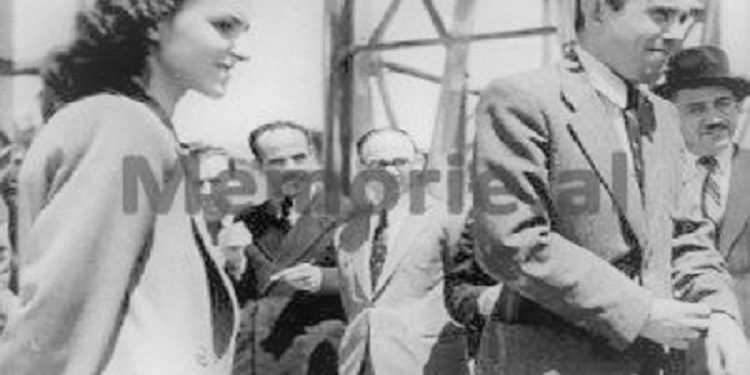
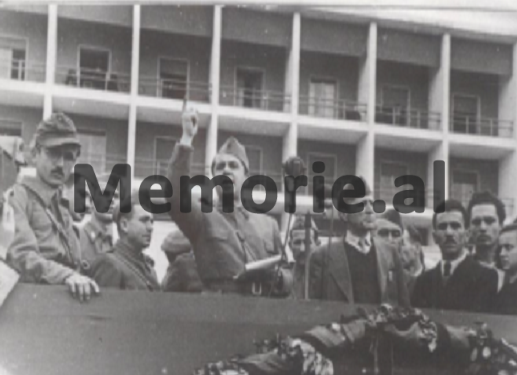
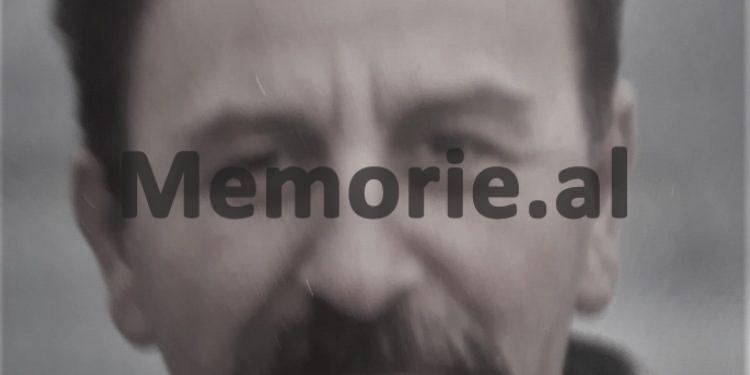
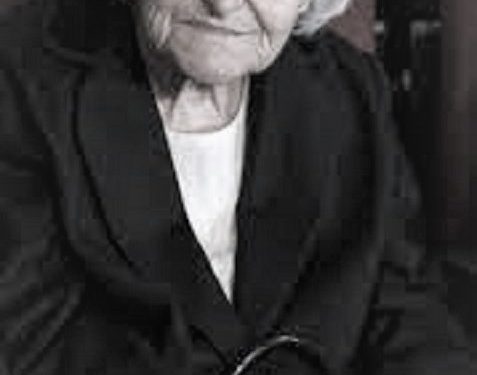
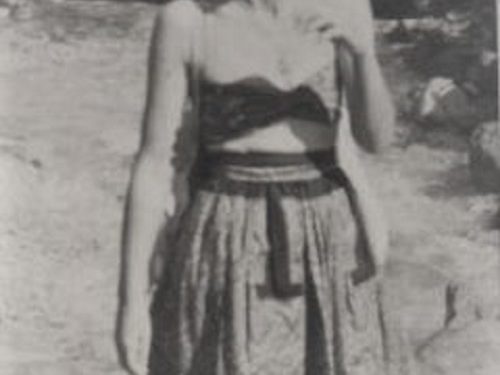
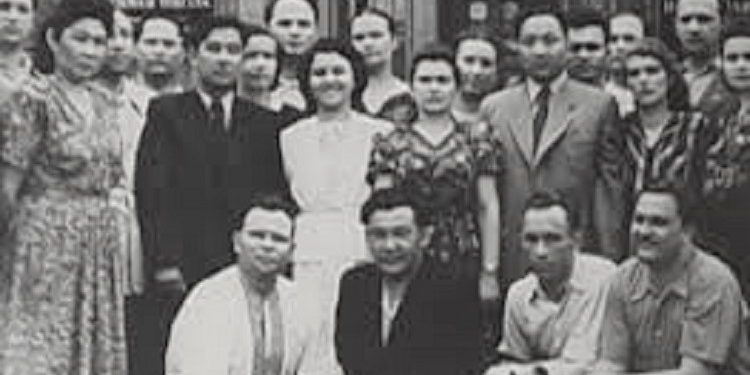
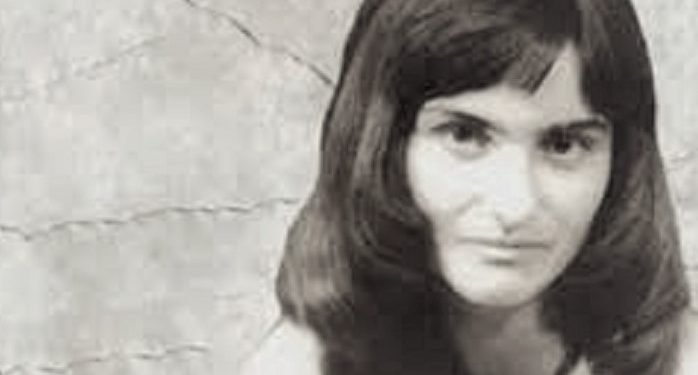
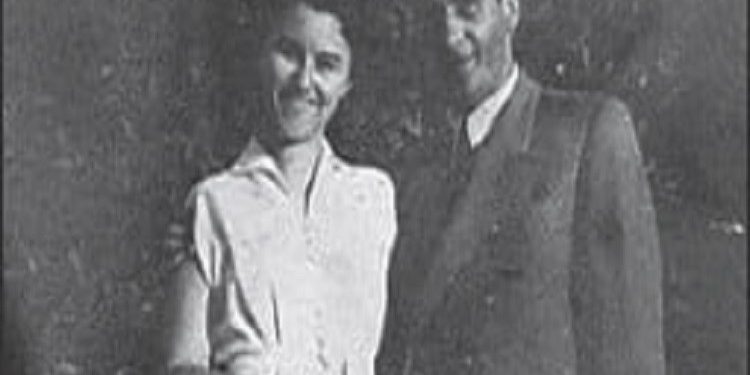
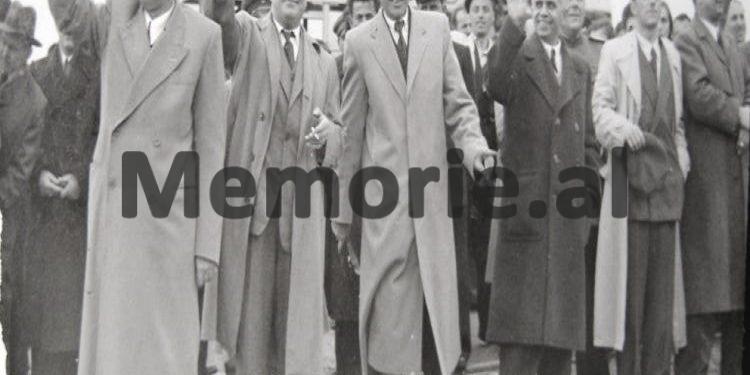
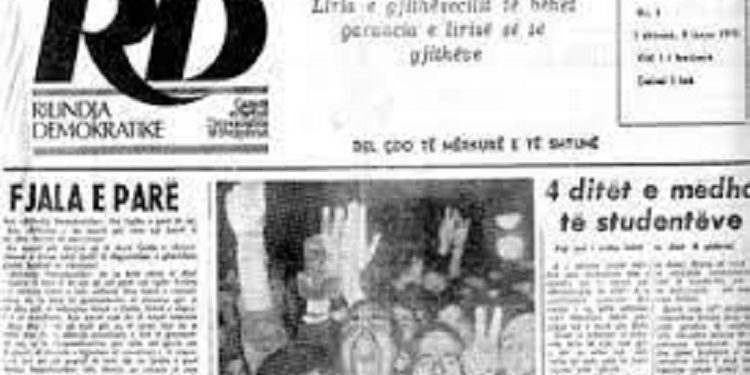
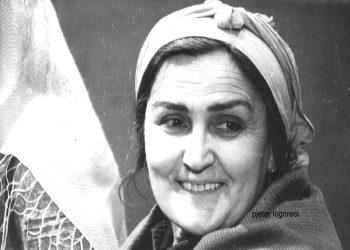
![“When the party secretary told me: ‘Why are you going to the city? Your comrades are harvesting wheat in the [voluntary] action, where the Party and Comrade Enver call them, while you wander about; they are fighting in Vietnam,’ I…”/ Reflections of the writer from Vlora.](https://memorie.al/wp-content/uploads/2025/06/admin-ajax-4-350x250.jpg)


